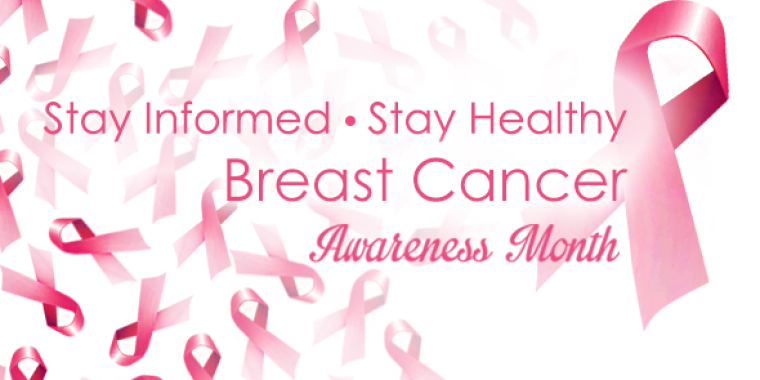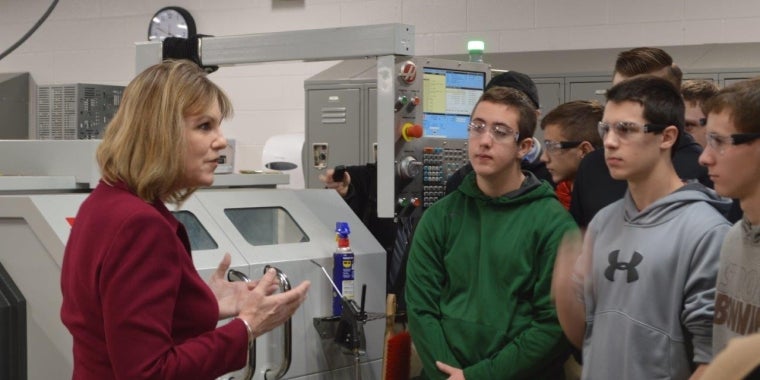
Breast Cancer: The Best Protection is Early Detection
Catharine Young
October 8, 2014

October is Breast Cancer Awareness Month and a good time for women to take the opportunity to be screened for breast, as well as ovarian and colorectal, cancer. Because early detection can save lives, I encourage women to consult with their physician, learn more about the risks of cancer, and develop a plan for getting screened regularly.
Great strides have been made in the early detection and treatment of breast cancer in recent years. Today, many diagnosed women are living longer, healthier lives. But the fight against this deadly disease is far from over.
It is recommended that women between 50 and 74 years old and at average risk for breast cancer receive a mammogram every two years. Women younger than 50 or at higher risk should talk with their doctor about when and how often they should be screened.
ADELPHI NY STATEWIDE BREAST CANCER HOTLINE & SUPPORT PROGRAM
If you, or someone you know, has questions about breast cancer, the Adelphi NY Statewide Breast Cancer Hotline & Support Program is a great resource for getting answers and help. For information and support in coping with a diagnosis of breast cancer, visit their website at breast-cancer.adelphi.edu or call their hotline at 800-877-8077.
CANCER SERVICES PROGRAM
It is also important for women to know that if their insurance doesn't cover early detection cancer screenings, the New York State Cancer Services Program (CSP) provides breast, cervical, and colorectal cancer screenings absolutely free. Just call 866-442-CANCER (2262) 24 hours a day, 7 days a week, to be connected to a free screening site near you. Visit www.health.ny.gov/diseases/cancer/services for more info.
For your convenience, here is also the contact information for your local health department and CSP office:
Allegany County
Health Department: 585-268-9250 - healthinfo@alleganyco.com
Cancer Services Program of Allegany & Cattaraugus Counties: 585-593-4839
Cattaraugus County
Health Department: 716-373-8050 -or- 800-251-2584 - health@cattco.org
Cancer Services Program of Allegany & Cattaraugus Counties: 585-593-4839
Chautauqua County
Health Department: 716-753-4421 - cchealth@co.chautauqua.ny.us
Cancer Services Program of Chautauqua County: 800-506-9185
Livingston County
Health Department: 585-243-7270 - dept-of-health@co.livingston.ny.us
Cancer Services Program of Livingston & Wyoming Counties: 585-786-8890 -or- 800-588-8670
You may also be interested to know that we passed a new law this year requiring the NYS Department of Health to create a website devoted exclusively to women’s health. This website will provide information on how women can conveniently access 22 important preventative services – including breast cancer mammography screenings. I will be sure to keep you informed of when the set up of this site is complete.
RISK FACTORS
Although the causes of breast cancer are still unknown, the following factors may increase a woman’s risk of the disease:
- Advancing age;
- Having a first menstrual period younger than 12 years old;
- Starting menopause older than the age of 55;
- Never giving birth or having delayed giving birth to a first child until after age 30;
- Not breastfeeding;
- Having a personal or family history (on the mother’s or father’s side) of breast cancer, especially early (pre-menopausal) breast cancer;
- Having certain gene mutations such as BRCA 1 or BRCA 2;
- Being overweight or obese;
- Drinking alcoholic beverages (the level of risk rises as the amount of alcohol consumed rises);
- Being sedentary;
- Having a history of radiation exposure to the chest; or
- Taking hormone replacement therapy for an extended period of time.
Even if a woman has one or more of these risk factors for breast cancer, it does not mean she will be diagnosed with the disease. Conversely, many women diagnosed with breast cancer do not have any risk factors or unusual symptoms, which is why screening is so important. Women with a personal or family history of breast cancer may want to consider genetic counseling to determine if they are at greater risk.
The National Cancer Institute provides an online breast cancer risk assessment tool that women and their physicians can use to estimate their patients’ personal risk of developing invasive breast cancer. More info is available at www.cancer.gov/bcrisktool.
MEN AGAINST BREAST CANCER
I also know that men can be diagnozed with breast cancer and that a diagnosis of any individual affects their entire family. Men Against Breast Cancer (MABC) is an organization that provides support services and education to men and offers information about how they can help their loved one tackle the challenges of breast cancer. Visit www.menagainstbreastcancer.org for more info.
I will be sure to continue supporting breast cancer prevention, early detection, and the education and support services that women need and deserve. Together we can beat this disease.
Share this Article or Press Release
Newsroom
Go to NewsroomSenator Young Secures $50,000 for Stanley Hose Company
September 28, 2018
Senator Young Secures $80,000 for “Dream It Do It” Program
September 26, 2018


NPR's 1A "The Crime That Changed Mental Health Treatment"
September 13, 2018